Modern Poultry Farming: A More Environmentally Friendly Approach
In recent years, modern poultry farming has emerged as a more environmentally friendly approach within the agricultural sector. Innovations in technology, sustainable practices, and a focus on efficiency have contributed to a significant reduction in the environmental footprint of poultry production. Let’s explores how modern poultry farming practices are shaping a more sustainable future, emphasising the positive impact on the environment.
Technological Advancements in Poultry Farming
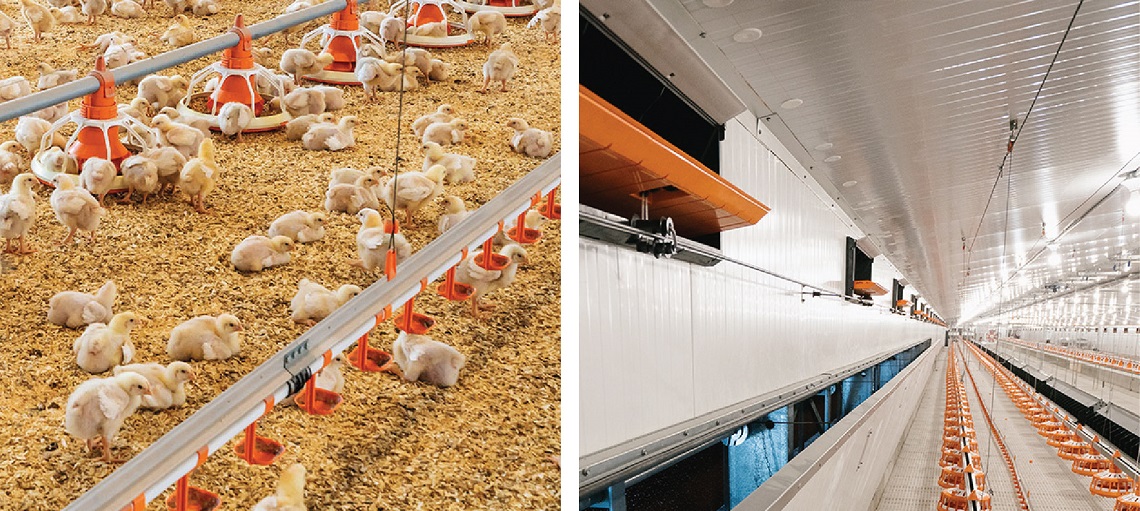
One of the most significant factors contributing to the environmental friendliness of modern poultry farming is the integration of advanced technologies. Automated systems for feeding, drinking, and climate control have optimised resource usage, reducing waste and improving overall efficiency. Precision farming techniques allow for precise monitoring and management of poultry health, minimising the need for antibiotics and reducing the risk of disease outbreaks.
Sustainable Feed Practices
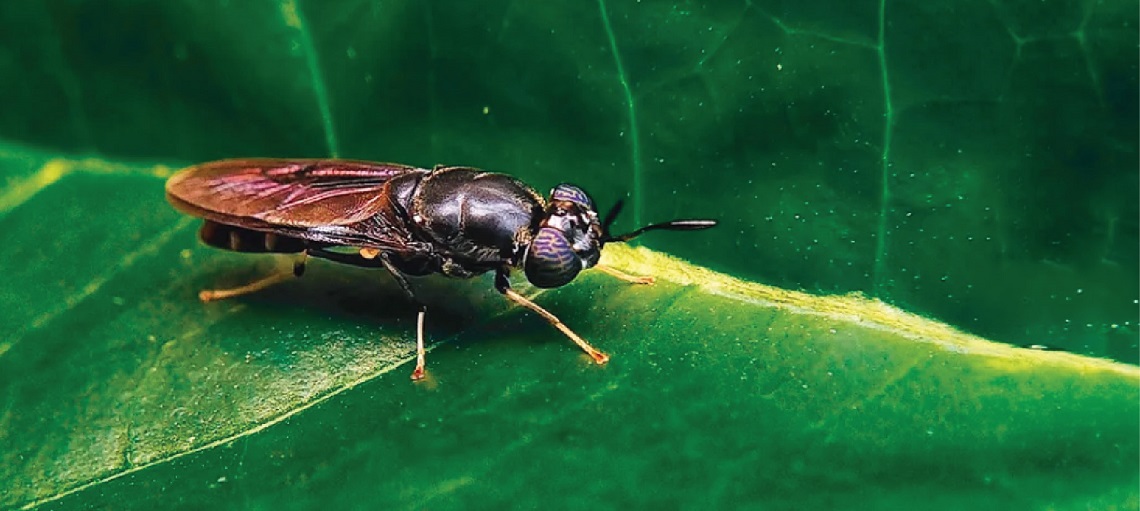
Sustainable feed practices are another crucial aspect of modern poultry farming. Traditional feed sources are being replaced with more sustainable alternatives, such as insect-based proteins and algae. These alternative feed sources require fewer resources to produce and have a lower environmental impact compared to conventional feed ingredients like soy and corn. Additionally, advancements in feed formulation have improved feed conversion ratios, meaning that less feed is required to produce the same amount of poultry meat, further reducing the environmental footprint.
Waste Management and Recycling
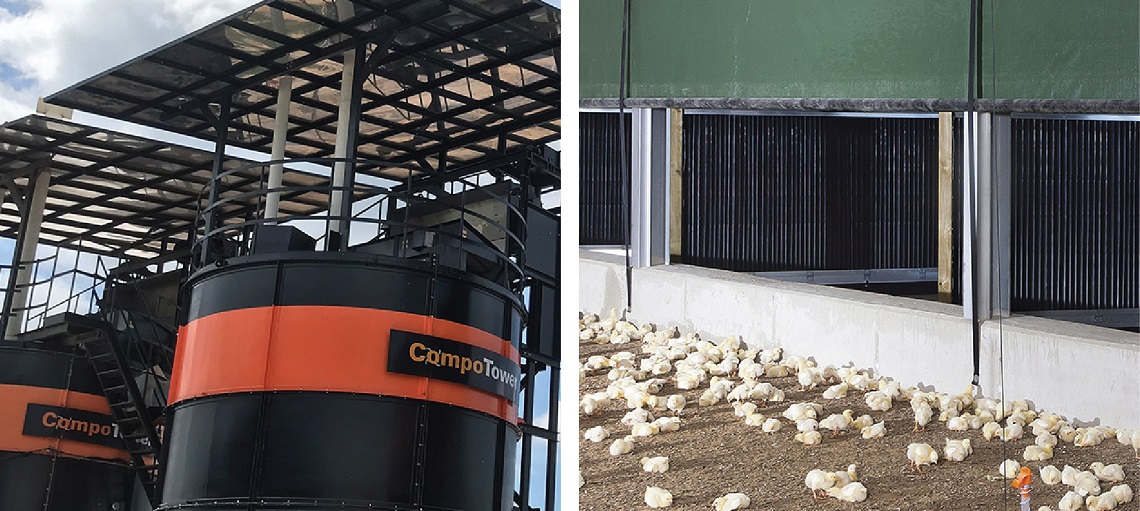
Effective waste management is essential in reducing the environmental impact of poultry farming. Modern poultry farms employ advanced waste management systems that convert poultry litter and manure into valuable by-products such as fertilizers and bioenergy. Manure drying systems such as OptiPlate and composting systems such as CompoTower have helped many poultry farmers in Asia to enhance their environmental credentials. Additionally, air cleaning systems such as Scrubbers and Filters minimises air pollution for more hygienic operations. These systems not only mitigate the negative effects of waste on the environment but also contribute to a circular economy by recycling nutrients and reducing the need for synthetic fertilizers.
Energy Efficiency and Renewable Energy
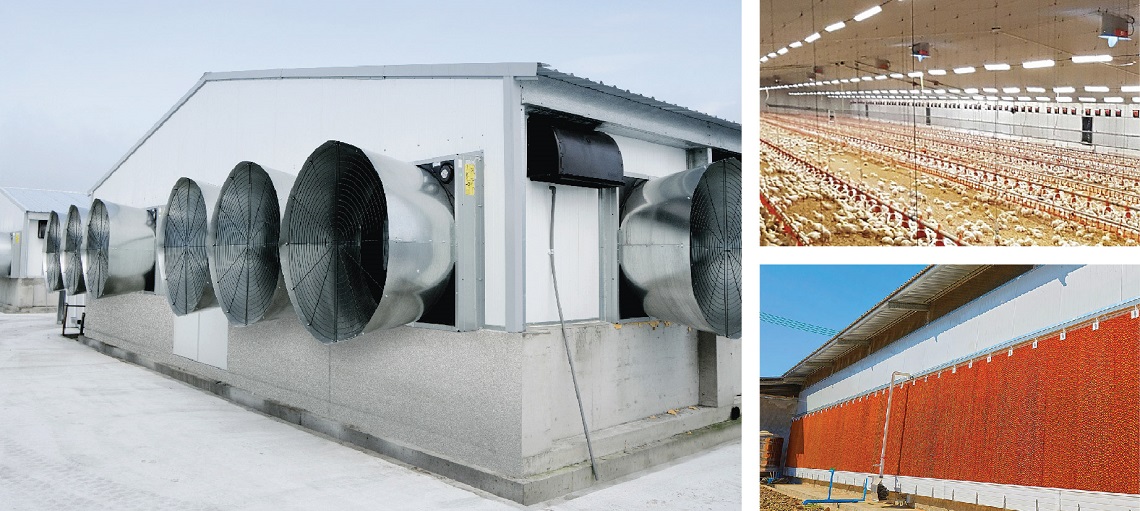
Energy efficiency plays a vital role in the sustainability of modern poultry farming. Poultry houses are now equipped with energy-efficient lighting, ventilation, and cooling systems, which significantly reduce energy consumption. Moreover, many poultry farms are investing in renewable energy sources such as solar and wind power. By generating their own energy, these farms can reduce their reliance on fossil fuels and lower their greenhouse gas emissions.
Water Conservation Practices
Water conservation is a critical component of environmentally friendly poultry farming. Modern farms use advanced water management systems that monitor and regulate water usage, ensuring that it is used efficiently. Closed-loop water systems recycle water within the farm, minimising waste and reducing the demand on local water resources. These practices are particularly important in regions where water scarcity is a concern.
Reduced Antibiotic Usage
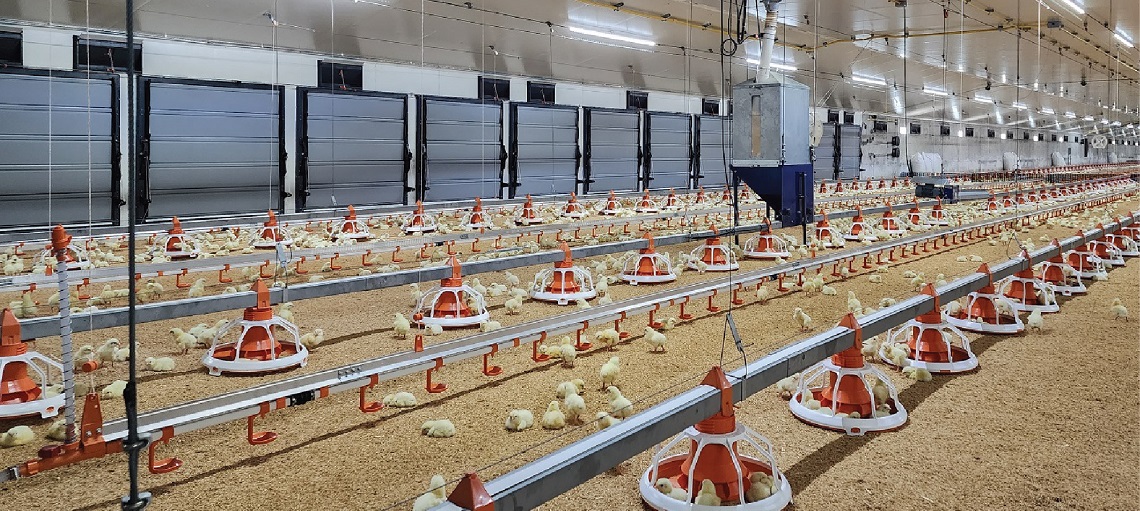
The reduction of antibiotic usage in modern poultry farming has significant environmental benefits. Overuse of antibiotics in agriculture can lead to the development of antibiotic-resistant bacteria, which pose a threat to both human and animal health. By implementing better biosecurity measures, vaccination programs, and improved animal husbandry practices, modern poultry farms have reduced the need for antibiotics, thus minimising the risk of antibiotic resistance and its environmental impact.
Impact on Biodiversity
Modern poultry farming practices also have a positive impact on biodiversity. Sustainable land management practices, such as rotational grazing and maintaining natural habitats around poultry farms, help preserve local ecosystems and support wildlife. By reducing the pressure on natural habitats and promoting biodiversity, modern poultry farming contributes to the overall health of the environment.
Carbon Footprint Reduction
Reducing the carbon footprint is a major goal of modern poultry farming. By adopting sustainable practices, such as using renewable energy, optimising feed efficiency, and implementing waste-to-energy systems, poultry farms can significantly lower their greenhouse gas emissions. These efforts contribute to the global fight against climate change and help create a more sustainable future.
Consumer Awareness and Demand for Sustainability
The growing consumer awareness and demand for sustainable food products have also driven the shift towards environmentally friendly poultry farming. Consumers are increasingly concerned about the environmental impact of their food choices and are seeking products that are produced using sustainable methods. This demand has incentivised poultry farmers to adopt practices that are not only environmentally friendly but also economically viable.
Future Trends and Innovations
The future of poultry farming is likely to see continued advancements and innovations aimed at further reducing the environmental impact. Developments in biotechnology, such as the use of genetically modified organisms (GMOs) to improve feed efficiency and disease resistance, hold promise for more sustainable poultry production. Additionally, the integration of artificial intelligence and data analytics can enhance farm management practices, optimizing resource use and minimizing waste.
Modern poultry farming represents a significant step forward in creating a more environmentally friendly agricultural system. Through the adoption of advanced technologies, sustainable feed practices, efficient waste management, and renewable energy sources, the poultry industry is making strides in reducing its environmental footprint. As consumer awareness and demand for sustainable products continue to grow, and with the support of government policies, the future of poultry farming looks promising in contributing to a more sustainable and environmentally friendly world.
Learn more about Big Dutchman’s innovations for modern, sustainable poultry farming. Click the ‘Send a Message’ Button below to talk to us.

